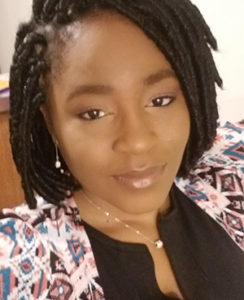
Why is spotlighting Minority Mental Health Month important? What are messages about mental health that are particularly needed for individuals in your community?
Spotlighting Minority Mental Health Month is important because it aids in advocacy for marginalized people who may think their voices aren’t worthy of being heard. Representation, empathy, hope, seeking help is not weakness…these are only a few messages that need to be amplified to the black community.
How do you feel and see the interaction between your racial identity and your mental health condition interact? What unique or particular challenges, circumstances, or benefits have you experienced as a result?
For a long time, I had my own stigma around mental illness…before I even knew what it fully was. I was experiencing symptoms of anxiety and depression, later diagnosed as Major Depressive disorder. A lot of times I would be accused of being mean or aggressive when really, I was just anxious and overwhelmed. The angry black girl or woman is the narrative that gets thrown around for women of color and thug or super predator for boys and men of color. No one ever stops to ask us: What happened? How are you feeling today? Have you had something to eat? Would you like to talk? The assumption is we are angry we will always be angry or aggressive, so there is no need to think of us as having any other human emotion.
What are your biggest mental health related accomplishments so far? What are you proudest to have contributed to?
My biggest mental health related accomplishment is self-advocacy. I contribute to the voice of people with lived experience. I went from going to treatment and being switched around by care providers to searching for and finding a therapist on my own and navigating the health care system to ensure I got medical coverage for therapy sessions.
What would you like to see, in the short- or long-term, change in the mental health space? What impact would you like to have?
I would like to see the needs of minorities being taken more seriously, I would like this “Spotlighting” to become irrelevant because minorities are getting fair access, information and treatment. That should be the new normal. I will continue to be a liaison and provide peer support.


